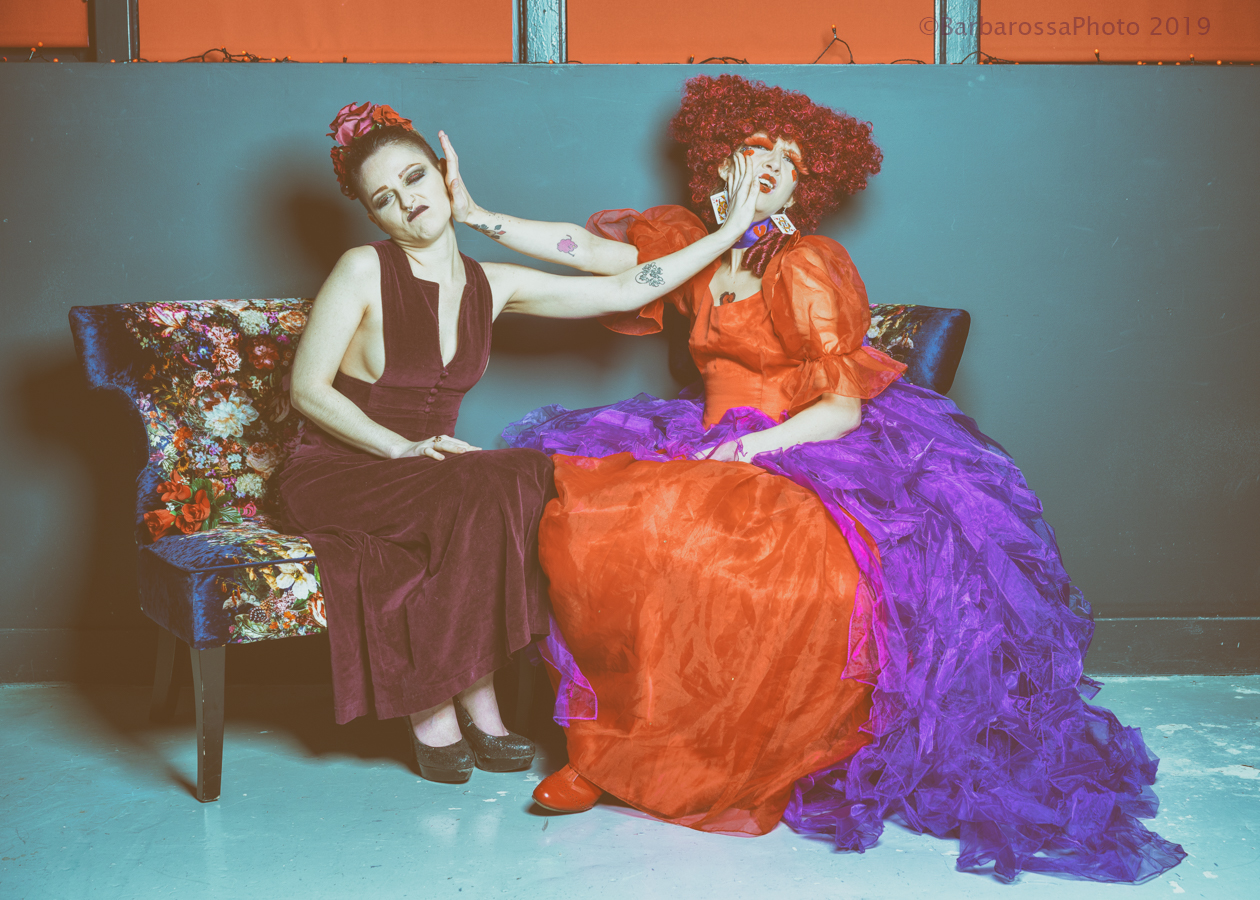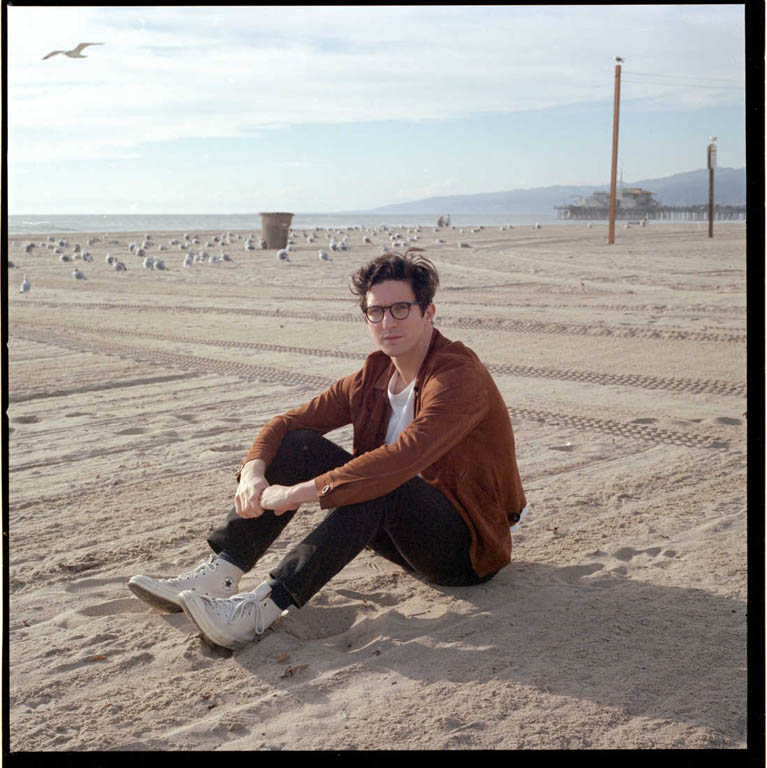
2020 is looking good for Sinead O’Brien. Her first headline London show of the year is sold out already, she’s on many tip lists including NME’s Top 100 fresh talent, and named in the top 25 acts at last week’s Eurosonic showcase festival in the Netherlands. Not bad work, seeing as we’re only three weeks into January.
Dublin-born spoken word artist O’Brien who performs with her art rock – post punk band (‘we are pretty much soul mates’) made of Julian Hanson on guitar and Oscar Robertson on drums, describes nods from the NME and suchlike as ‘surreal’. Yet she’s been slowly making quite a name for herself for the last year or so releasing songs via Speedy Wunderground (Kate Tempest, black midi) and Chess Club Records (Wolf Alice), playing lots of shows and supporting Brian Jonestown Massacre and John Cooper Clarke around the UK.
We chat during Sinead’s lunch hour from her day job working for legendary designer Vivienne Westwood, about how her passions for classic poets and authors and lyricists of a literary bent like Nick Cave in addition to songwriters of a more grounded reality – namely Mark E Smith, who she discovered courtesy of Cooper Clarke – helped develop her words. There’s a drama in her songs diving into dark worlds and she’s keen to stress that music informed her creative writing from the get-go.
‘I found myself in Paris after graduating, with some girls from college. I liked to go exploring on my own and I would always be listening to music, taking notes and the musical backdrop was how the words came out,’ she explains.
‘It wasn’t coming out or happening in silence.’
Sinead wrote creatively for a while and shared it with friends only before embarking on what she calls the Year of the Yes Girls, embracing opportunities that came her way.
‘If you tend to be slightly introverted you’ll tend to say no to a lot of things to self protect or make sure you have enough time to rest in between social situations. I found it incredibly energizing because I don’t know if I am an introvert. Somewhere in between. Saying yes, I found myself with very different people.’
Creative people who are introverts have enough of an ego to get their work out there, which I always find interesting.
‘People can be proud to present their work but then very shy about personal elements and personality aspects. I don’t ever feel doubtful sharing work or playing a gig or doing a reading or submitting something….because it’s something that I’m proud of. Personality is a different thing, with creative people it’s a wonder they ever end up performing! There must be so much hidden, invisible performances that could happen, potential performances.’
One of the first things Sinead said a very wise yes to was performing at the New Gums spoken word night at London’s Windmill venue. With musical backing written and performed by friend Niall Burns from indie band WhenYoung, the night was about ‘saying yes to doing a performance when I had absolutely no idea I even wanted to do one single performance or anything, you know? Newness comes with saying yes.’
Now with Julian and Oscar as her musical collaborators, Sinead handles the words and the two men deal with the music side but with her guidance and input. Her Irish lilt on the songs is musical itself and distinctive, her delivery and words unapologetic and challenging. Last summer’s ‘Taking On Time’ is a uncompromising stream of consciousness, October’s ‘Limbo’ taking no prisoners whatsoever.
‘Lyrics first, then the rhythm is the first thing that I know. What pace this has to be, if it’s going to be the fastest song on earth or slow motion, a marching rhythm. I usually go straight to Julian and give him some descriptions and ideas, mostly words, I tell him “the mood for this is something between waking and sleeping” and Julian will improvise a bit and we’ll get some sort of motif going and then we work back and forth then bring in Oscar.’
Sinead is described as a punk poet and whilst there are definite poetic elements and her written work is published in literary journals, her lyrics are not actual poetry, I put to her. Describing them in such a way it feels like an attempt to legitimize something already perfectly valid.
‘You can’t stop people from calling things what they want. Let people use whatever words they want to categorize things,’ she says diplomatically.
‘But for me anyway if I was writing something to be read it would be different, because you don’t have the opportunity to perform the rhythm of the words. So it has to be different. For me rhythm and intonation is a massive thing. So I wouldn’t call my pieces now poetry. I have a lot of poetry on my laptop. It’s different.’
And what about the punk aspect?
‘Punk is really familiar to me because I work for Vivienne Westwood… I love all of the attitudes and everything that went along with punk and I feel that attitude never goes away. I like to subvert things, I don’t take anything as it is. I think it’s cool. I’m flattered.’

She wants herself, Julian and Oscar to be seen as different to a more conventional spoken word setup. She’s pleased that more and more are accepting the formation as a band (‘something you can feel, move to’) rather than a spoken word novelty.
‘I didn’t want to get pigeonholed into the “put her on first because it’s speaking” or whatever. This is a band and what the content is, is something else. I want to be given that platform. Oscar is a trained jazz musician so he’s amazing with rhythm and inventing rhythm that people want to dance to. We’re really keen on people to get involved not just stand and listen.’
Sinead has a restlessness within her writing, performance and life. Born in Dublin and later moving to Limerick she lived in Paris for a spell, and now resides in London. Moving house a lot within the city, she doesn’t thrive when feeling ‘settled or cosy’ as she describes it. Selling much of her possessions bar the basics of clothes, books and textiles was ‘such a great feeling. Nothing wasteful, no excess. It was a feeling of wanting to strip everything back down to the essentials.’
Happily nomadic, she’s lived in intriguing places. A mansion in Hampstead for one and another a former convent.
‘That made for good writing time. Like being on a retreat, but quite tough,’ she says of the latter.
You’re sketching out a quite glamorous, rock ‘n’ roll scenario here Sinead.
She laughs. ‘My mother didn’t think it was too glamorous, she stayed with me in the convent! There was a hole in the ceiling. I had a shower in my sink because there were builders in the bathroom…’
Sinead is intrigued by different surroundings, savouring the prospect of using those surroundings to inform what she creates and how she performs.
‘I’m very interested in environments in general. I want each piece to be different and occupy its own space. So when I create a body of work or for further down the line, each piece is different.’
‘Some are extremely coherent with a narrative and character. Some pieces are “I”, some are abstract. In the last few things I recorded just before Christmas, I’ve been focusing a lot on structure. I think I’ve come up with something new for me anyway, in terms of how words are used, how the chorus might come into it. I’m excited to see how that’s perceived as well.’

Right now Sinead is preparing for a short tour of the UK which takes in Birkenhead Central Library for an afternoon show. There are festivals too over the summer and an already recorded EP to be released soon. Busy, busy…
‘At Christmas I allowed myself to take a breather. Didn’t stop writing though! When you think you’ve stopped that’s the best because that’s when the secret stuff comes out. There’s no stopping that!’
‘I’ve got a lot of hopes for this year,’ she says, firmly. ‘I’m feeling ready.’
Sinead O’Brien plays Birkenhead Central Library on 2 Feb as part of Independent Venue Week.
Cath Holland


